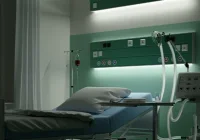The new government is in place, the ministers have been sworn in, and the chancellor has been elected. The coalition agreement was agreed upon by the CDU, CSU, and SPD. However, there is no real sense of optimism, especially after this difficult start with two attempts to elect chancellor. Perhaps that spirit will return with the work on future viability—including the healthcare system. At least the ambitious goal for hospitals has been set: to legally develop the hospital landscape by next summer, building on the hospital reform. A truly ambitious task for the new Federal Minister of Health and her department.
Nina Warken is the new Federal Minister of Health. Hardly anyone in the health sector expected her appointment to the health ministry, even though she has long been involved in shaping policy at the state and federal levels – as Secretary General of the CDU Baden-Württemberg, Parliamentary Secretary of the CDU/CSU parliamentary group, and a member of the Health Committee's Corona Advisory Committee. As the Association of Hospital Directors in Germany, we wish her much success in the constructive further development of hospital reform. As practitioners, we hope for a constructive dialogue with the new minister and her ministry for sustainable healthcare – a dialogue that we have unfortunately missed in recent years.
Nina Warken will receive competent support from two Parliamentary State Secretaries, Tino Sorge and Dr. Georg Kippels, who bring extensive experience in health policy and are highly respected in the hospital sector. Tino Sorge was most recently a member of the Health Committee in the Bundestag and, in the previous legislative period, served as the health policy spokesperson for the CDU/CSU parliamentary group. Dr. Georg Kippels also most recently served as a member of the Health Committee and the Subcommittee on Global Health, where he served as the spokesperson for the CDU/CSU parliamentary group.
On the one hand, the VKD is pleased that some of the association's important demands are reflected in the coalition agreement. On the other hand, these proposals are formulated rather vaguely, so skepticism unfortunately seems appropriate. The paper from the Health Working Group was even more specific.
The €4 billion compensation promised in the exploratory paper for the operating cost gap that arose in 2022 and 2023 gave rise to a slight sense of optimism. The coalition paper now simply refers to the special infrastructure fund, without being specific. If this were actually implemented as quickly as possible, it would of course provide relief, but unfortunately, it would be insufficient in the long term. In the view of the VKD, this measure, in order to permanently mitigate the current insolvency risks of German hospitals, must not be limited to a one-off payment. It must also be reflected in the state base case value in subsequent years. The VKD's hope that this self-evident financing logic would be taken into account in the coalition agreement has now been dashed. This means that the difficult economic situation of hospitals will continue with the implementation of the hospital reform starting in 2027 – starting hospital reform from the crisis is not a good start.
It is very disappointing that the reserve funding, which has been viewed very critically not only by the Association of German Hospitals (VKD), will not be suspended immediately until a model that is truly independent of caseloads is available. The one-off payments for two years, at least envisaged and already mentioned, will end with the start of implementation of the financing reform. This will reduce the basis of the reserve budget to an inadequate level. This will by no means secure the survival of small hospitals in rural areas—on the contrary, it will further jeopardize their existence. The only hope here is that the anticipated negative effects will soon become apparent in practice and that corrections will then be implemented sooner.
The VKD welcomes the fact that NRW-pur plus 1 will initially apply to the structural changes to hospital planning. This was also stipulated in the coalition agreement. This will initially allow for the gathering of concrete experience with a system already being implemented, which can then be positively incorporated into further development at the federal level. The fact that an evaluation of the service groups is planned enables practical further development and is welcomed.
Unfortunately, the coalition agreement only contains general announcements regarding emergency reform without any concrete details, even though a draft bill already exists on which to build. The coalition agreement merely states that legislation on emergency and rescue service reform will be introduced. Emergency care has now become a controversial issue for the population. Not to mention the hospitals, which have not been adequately funded for their emergency services for many years and are increasingly having to take on outpatient emergency care.
The coalition agreement also once again promises a significant reduction in bureaucracy. Reducing bureaucracy primarily means reducing the culture of mistrust among politicians and health insurance companies towards service providers. A genuine bureaucracy reduction law has considerable potential to reduce costs and significantly alleviate staff shortages. At the same time, it will relieve the burden on inspectors in terms of personnel and costs – a true win-win situation. Proposals have long been on the table. Why they have not been implemented yet is unclear. At the same time, the implementation of the hospital reform will mean further bureaucracy. This too must be "gutted" quickly. The announcement in the coalition agreement to significantly reduce the inspection rate of hospitals by the Medical Service by extrapolating the results of random samples to 100 percent and adjusting the inspection frequency in the case of regularly unremarkable inspections can only be welcomed.
Overall, it's certainly positive that the coalition, as demonstrated by the coalition agreement, is committed to making hospital reform practical. Many detailed questions remain open, but we at the VKD remain confident that this joint effort—policymakers and practitioners—will lead to success.
Original Press Release: This is a translated version of the original German press release. To view the original text, Click Here (German).
Image Credit: VKD










